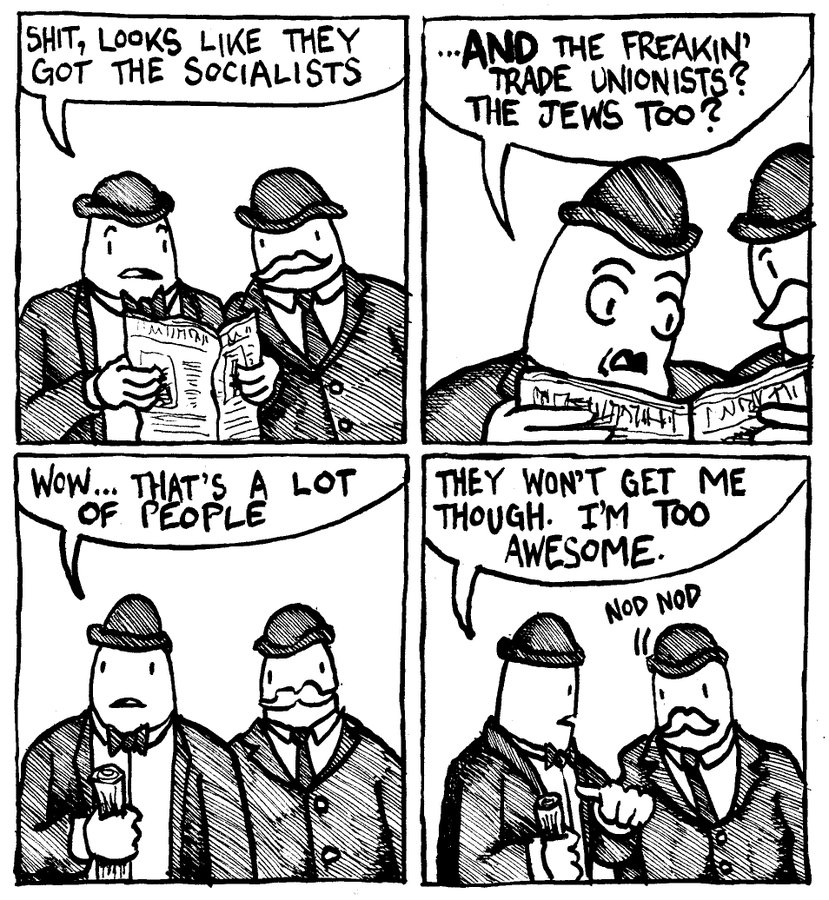this post was submitted on 22 Dec 2024
154 points (100.0% liked)
chapotraphouse
13606 readers
791 users here now
Banned? DM Wmill to appeal.
No anti-nautilism posts. See: Eco-fascism Primer
Slop posts go in c/slop. Don't post low-hanging fruit here.
founded 4 years ago
MODERATORS
you are viewing a single comment's thread
view the rest of the comments
view the rest of the comments

The 1918 Influenza Pandemic and the Rise of Italian Fascism: A Cross-City Quantitative and Historical Text Qualitative Analysis - PMC
Fed study ties 1918 flu pandemic to Nazi Party gains - POLITICO
~~A thread on Spanish Flu and the Nazis by pookleblinky~~ -I'm afraid this user deleted their twitter, so a really good thread on how Long Spanish Flu sufferers were probably some of the first victims of the Nazi's Euthanasia programs has disappeared.
The phrase Life Unworthy of Life was coined in 1920.
https://en.wikipedia.org/wiki/First_they_came_
Note this part
If you consider yourself a leftist you need to be masking and supporting the disabled, the immunocompromised, and everyone else abandoned by the lie of Back to Normal. Things are just getting started.